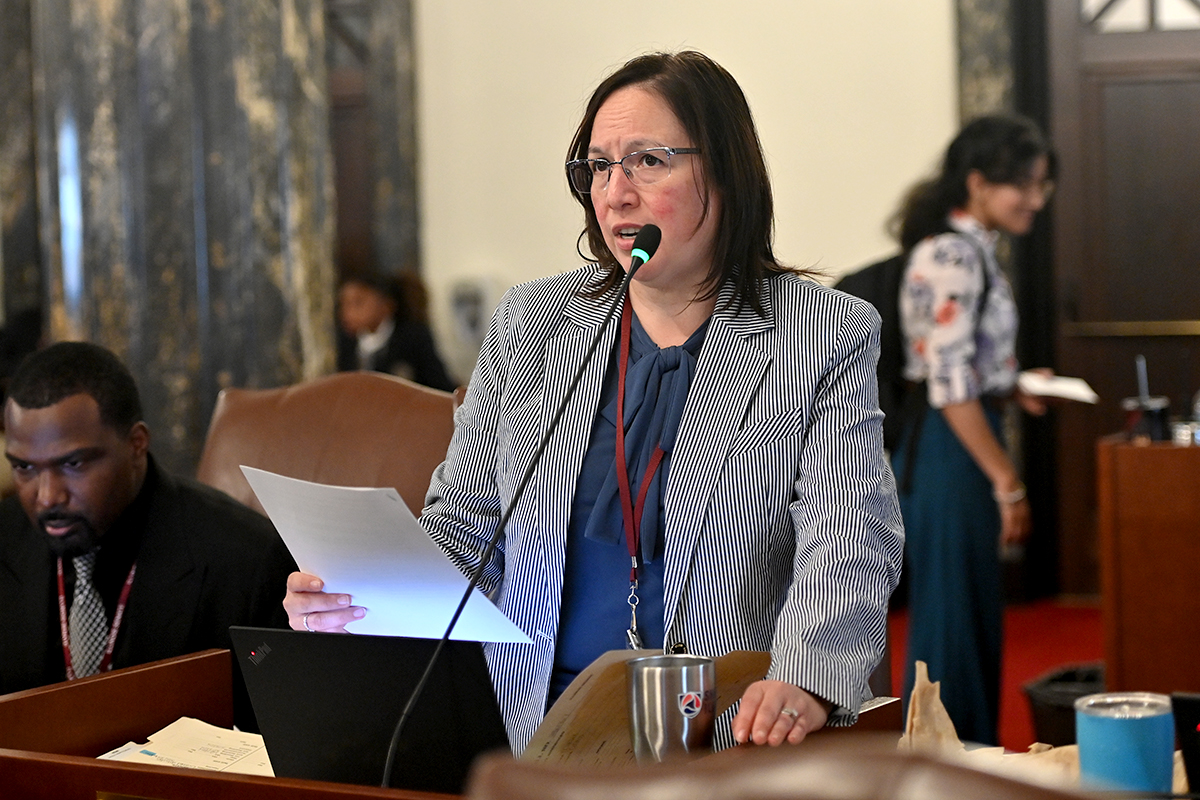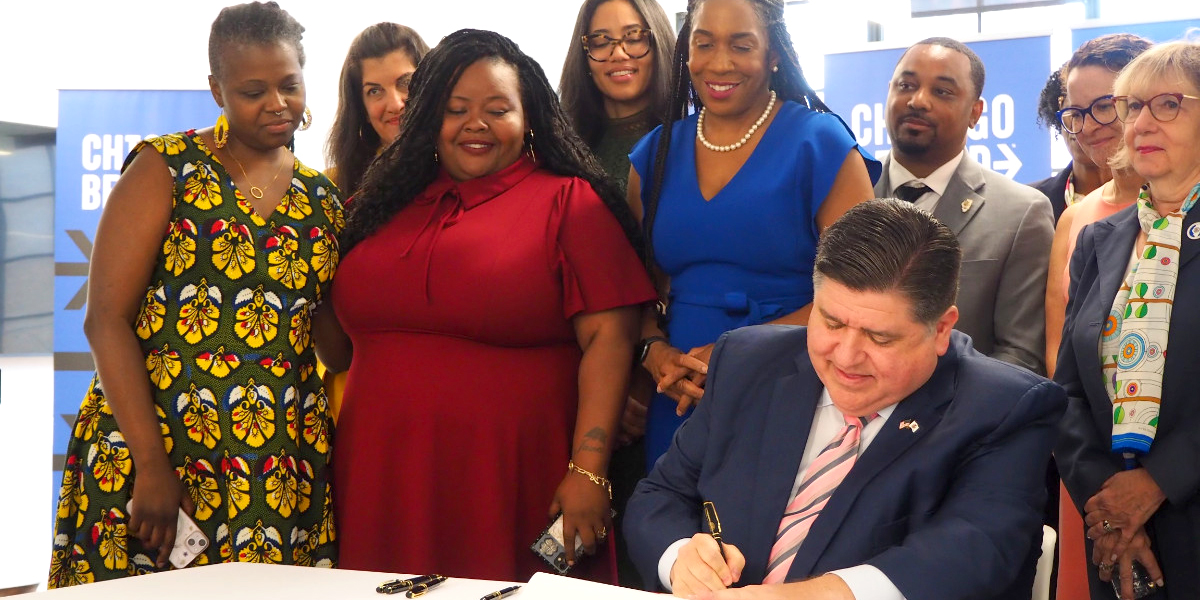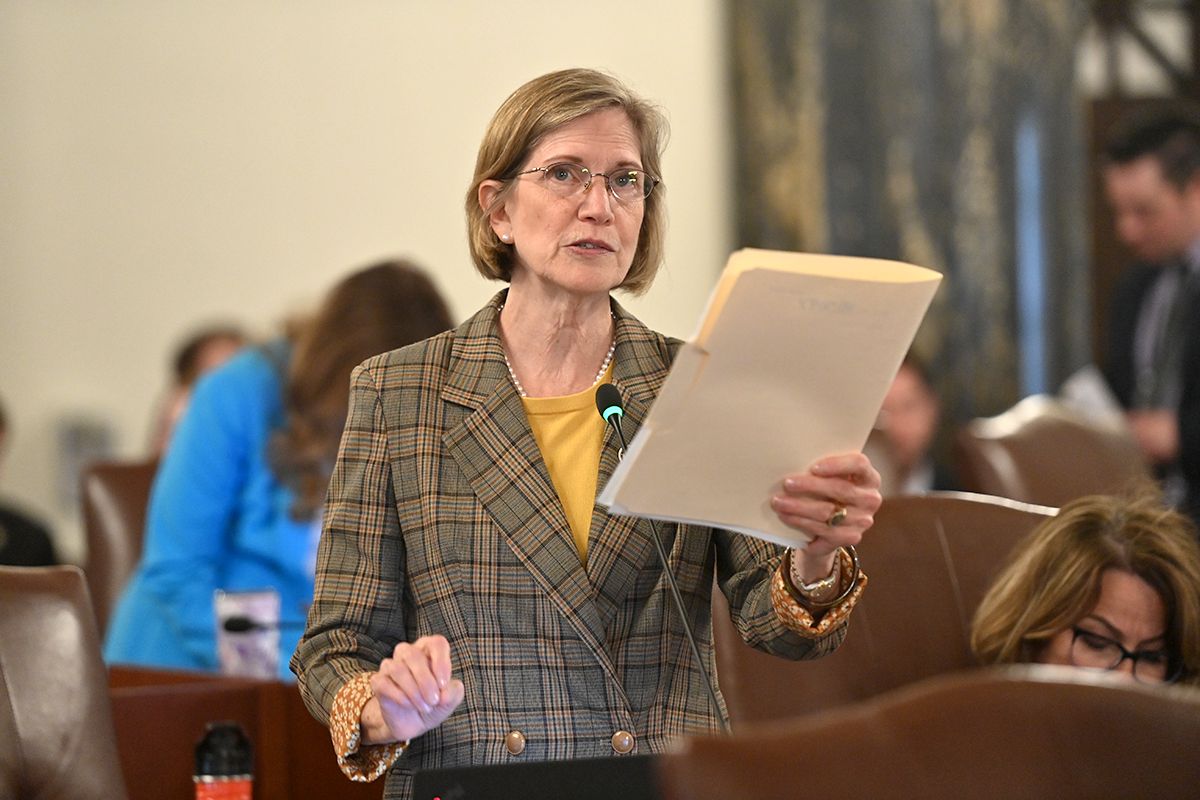- Details
- Category: Senator Sara Feigenholtz News
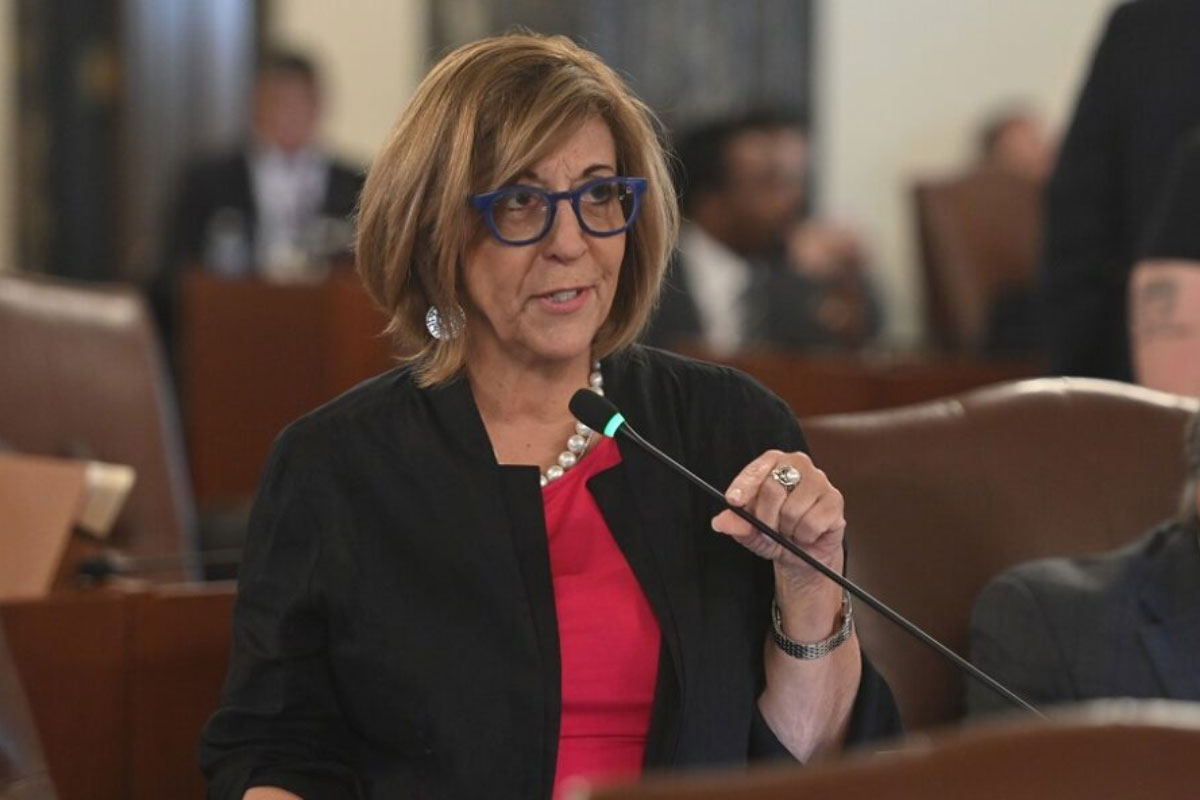 SPRINGFIELD — To help youth formerly in DCFS care achieve their higher education goals, State Senator Sara Feigenholtz spearheaded a new law providing scholarship recipients with greater flexibility in how they use the funding.
SPRINGFIELD — To help youth formerly in DCFS care achieve their higher education goals, State Senator Sara Feigenholtz spearheaded a new law providing scholarship recipients with greater flexibility in how they use the funding.
“By incentivizing diverse career paths, we’re making it easier for students to receive assistance as long as they are in good standing and working toward a degree, certificate or graduation,” said Feigenholtz (D-Chicago). “This flexibility supports greater access to higher education opportunities for former youth in care across our state.”
Read more: DCFS scholarship expansion signed into law, thanks to Feigenholtz
- Details
- Category: Senator Mike Porfirio News
 SPRINGFIELD – Veterans and service members across the state will soon have enhanced benefits knowledge, thanks to a new law sponsored by State Senator Mike Porfirio.
SPRINGFIELD – Veterans and service members across the state will soon have enhanced benefits knowledge, thanks to a new law sponsored by State Senator Mike Porfirio.
“This law ensures our veterans have easy access to critical information, helping them fully utilize the support they’ve earned through their service,” said Porfirio (D-Lyons Township). “In making this information more accessible, we are empowering veterans to take full advantage of the resources they deserve while reflecting our deep gratitude to those who have served our nation.”
- Details
- Category: Senator Celina Villanueva News
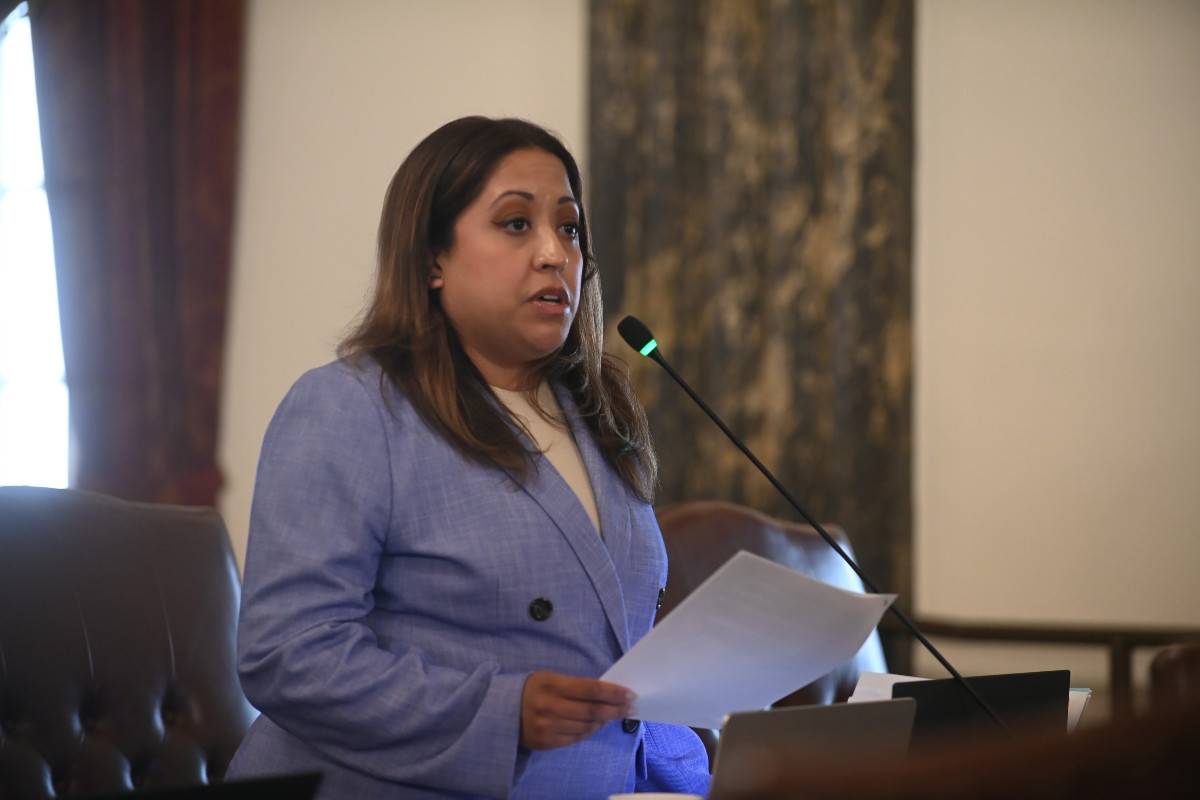
SPRINGFIELD – State Senator Celina Villanueva’s measure to allow minority-owned, women-owned and veteran-owned businesses to apply for up to $2 million in loans was signed into law Friday.
“We must continue to uplift disadvantaged communities and provide them with greater opportunities to succeed,” said Villanueva (D-Chicago). “These businesses are the backbones of their communities – and to see minority, women, and veteran-owned businesses thrive means hope is on the horizon.”
Senate Bill 3807 encourages more people to apply to the Department of Commerce and Economic Opportunity’s Minority, Veteran, Female and Disability Loan Program by increasing the maximum loan amount from $400,000 to $2 million.
Read more: Villanueva law to increase business loan opportunities for underserved communities
- Details
- Category: Senator Mike Simmons News
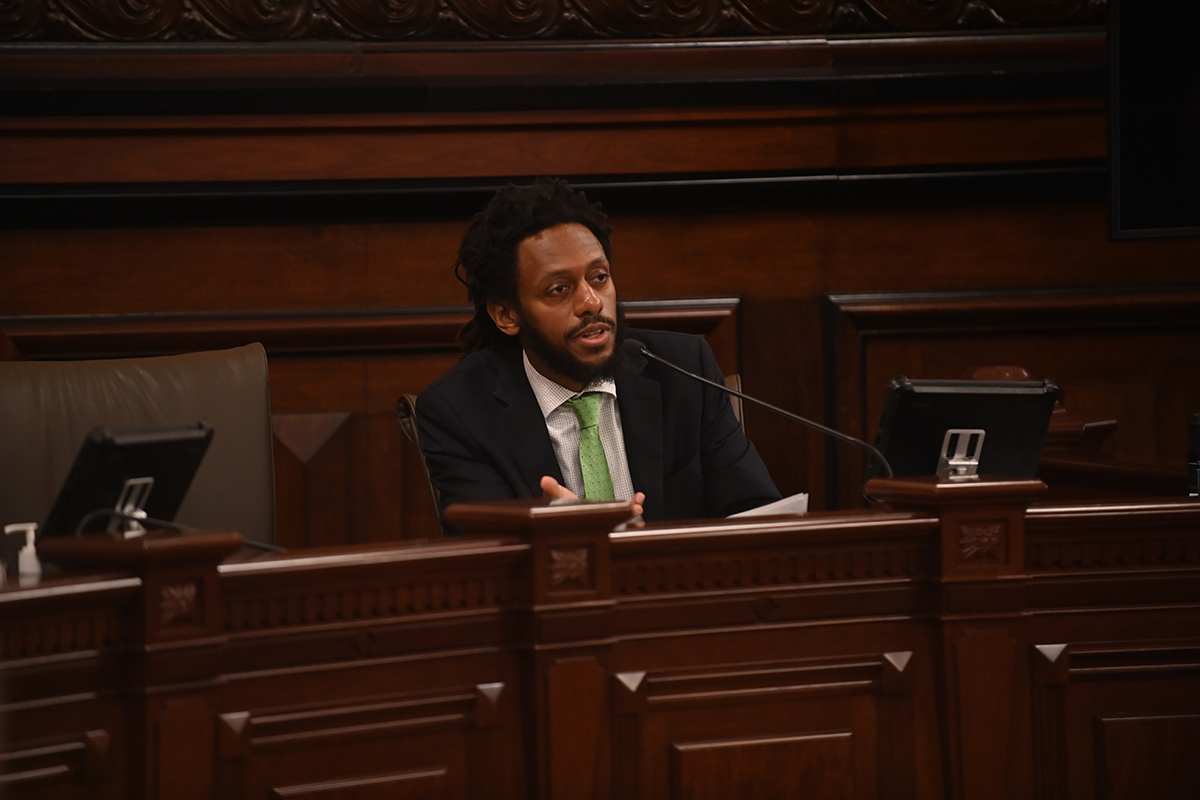
SPRINGFIELD – Thanks to State Senator Mike Simmons, Illinois is prepared to have a renewed focus on identifying and tackling health care disparities through a newly established Health Outcomes Review Board, which was signed into law on Friday.
Simmons' new law puts us on the path to the creation of an equitable Health Outcomes Review Board, overseen by the Illinois Department of Public Health, which will be dedicated to collecting and reporting de-identified health data with a focus on demographic factors like race, ethnicity, sexual orientation, gender identity and languages spoken.
“The Health Outcomes Review Board will be able to identify and address disparities in health care and improve policies for communities that have not been well-served by our health care systems,” said Simmons (D-Chicago). “Whether it’s the unacceptable maternal mortality rates of African American mothers, or inadequate access to specialty care for LGBTQ+ communities, the board will help identify those gaps and provide recommendations for addressing them.”
Read more: Simmons’ Health Outcomes Review Board to Identify and Tackle Health Care Disparities
- Details
- Category: Senator Linda Holmes News
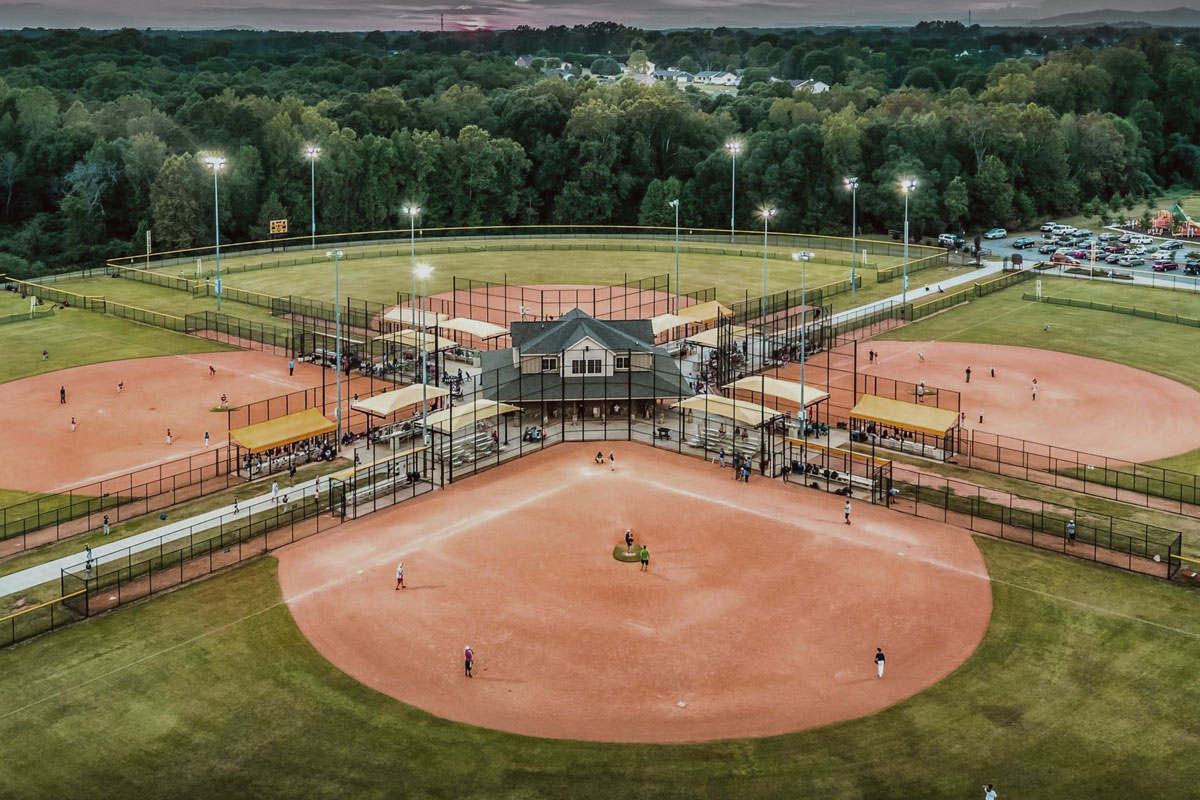 AURORA – In 2023, State Senator Linda Holmes collaborated with State Senator Julie Morrison to allow law enforcement agencies to use drones for public safety. This year, they cosponsored Senate Bill 2849 to give local governments authority to set reasonable rules for the airspace over public spaces; the measure is now law.
AURORA – In 2023, State Senator Linda Holmes collaborated with State Senator Julie Morrison to allow law enforcement agencies to use drones for public safety. This year, they cosponsored Senate Bill 2849 to give local governments authority to set reasonable rules for the airspace over public spaces; the measure is now law.
“Drones have the potential to aid our communities in many ways, and this is an example of giving local governments a say in when and where their use is appropriate,” said Holmes (D-Aurora). “For children engaged in a sporting event, the buzzing of a drone may distract players and supporters on the field. This law can prevent the disruption.”
Local parks, playgrounds, aquatic facilities, wildlife areas, sports fields or other recreational facilities will be off-limits to private drone operators.
“The Illinois Association of Park Districts applauds the passage of Senate Bill 2849. This important measure gives park districts, forest preserve districts and conservation districts a necessary tool to help ensure their public spaces are welcoming for all patrons,” said Peter Murphy, IAPD president and CEO. “The IAPD appreciates Governor Pritzker’s and the Illinois General Assembly’s support of this initiative.”
Morrison and Holmes support opportunities for local control on local issues by working with park districts statewide. Visitors to Illinois’ many beautiful, enjoyable outdoor spaces may look forward to spending that leisure time undisturbed.
The governor signed the legislation Friday, and it takes effect immediately.
- Details
- Category: Majority Report
Insurance coverage for IVF expanded under new Castro law
SPRINGFIELD — Standing strong on the issue of safeguarding women’s health, State Senator Cristina Castro championed the effort to expand access to fertility treatments like in vitro fertilization through a measure signed into law.
“Infertility affects millions of Americans, leaving thousands of hopeful parents in Illinois and across the United States unable to have a child on their own,” said Castro (D-Elgin). “The possibility of starting a family through advanced treatments like IVF represents hope for so many of these individuals – and this law takes steps to protect and expand access for the thousands who rely on it.”
Senate Democrats join governor in signing of historic birth equity legislation
CHICAGO — Members of the Senate Democratic Caucus joined Governor JB Pritzker to sign the Birth Equity Initiative into law. The new law will assist mothers and soon-to-be-mothers with receiving community-based health care options and resources.
“As a Black woman with three boys, this legislation is personal to me. The increasing rates of infant and maternal mortality, particularly among Black women, demand urgent action,” said State Senator Lakesia Collins (D-Chicago). “This law is not just about health care — it's about justice, equality and the right of every mother and child to have access to the safest and most effective care, ultimately reducing mortality rates and ensuring healthier futures for Illinois families.”
Cunningham’s measure to rein in rogue towing companies signed into law
SPRINGFIELD — State Senator Bill Cunningham’s measure to protect vehicle owners by updating towing regulations often abused by rogue towing companies was signed into law.
“We have residents getting a surprise $1,500 bill when all they’re trying to do is pick up a vehicle that was stolen from outside their residence,” said Cunningham, a Democrat who represents portions of Chicago and the Southwest Suburbs. “This measure will stop towing companies from charging any storage fees on stolen vehicles and makes sure that a proper notification process is set up.”
Glowiak Hilton law prohibits pharmacies from refusing paper prescriptions
SPRINGFIELD — In order to make medication more accessible to Illinoisans, State Senator Suzy Glowiak Hilton’s new law prohibits pharmacists from refusing to fill a written prescription.
“Pharmacies must accept doctors’ prescriptions for approved medication regardless of how the prescription is sent to them,” said Glowiak Hilton (D-Western Springs). “Every Illinoisan deserves the right to their medication when they need it.”

In case you missed it
MEMBERS IN THE NEWS
Senator Napoleon Harris, III, Harvey: Pritzker signs bill improving NIL law to help athletic departments, protect college athletes | WAND
Senator Dave Koehler, Peoria: Illinois local food infrastructure grant plan signed into law | WAND
Senator Doris Turner, Springfield: Governor Pritzker announces $5 million for tourism grant programs | WJOL
Senator Patrick Joyce, Essex: Joyce announces funding opportunity for fire departments | The Southland Journal
Copyright 2024 - Illinois Senate Democratic Caucus - All Rights Reserved
- Details
- Category: Senator Javier Loera Cervantes News
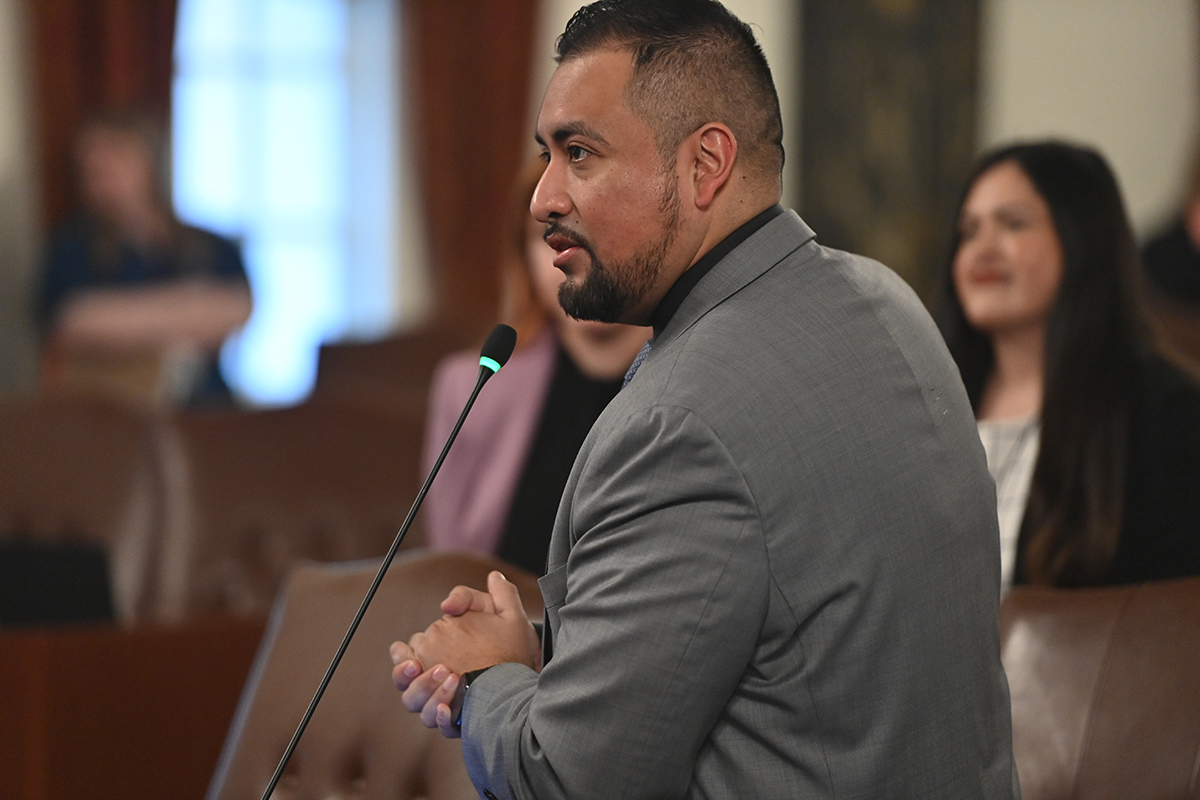
SPRINGFIELD – Advocating for immigrant employees, State Senator Javier Loera Cervantes’ new law will protect marginalized workers from unfair enforcement action during their employment.
“Many immigrant employees have run into a problem where their documentation may have misinput their name with slight differences of dashes, spaces, letters with or without an accent, only to be flagged during the work verification process,” said Cervantes (D-Chicago). “With this law, we can correct bureaucratic errors that would otherwise be detrimental to their income and livelihoods. By adjusting the system to allow workers more time to correct issues with documentation, we can make a huge impact for marginalized workers across Illinois.”
Federal immigration law requires employers to verify the legal work status of their employees through the E-Verify system. E-Verify compares information from an employee’s I-9 Form to records available to the Department of Homeland Security and the Social Security Administration to confirm eligibility. If discrepancies are found, immigrant workers have the possibility of receiving a “no match” letter for a variety of reasons, including instances where the individual changed their name due to marriage. Many employers terminate employees upon receiving this notice, even though they could be legally working in the United States.
- Details
- Category: Senator Julie A. Morrison News
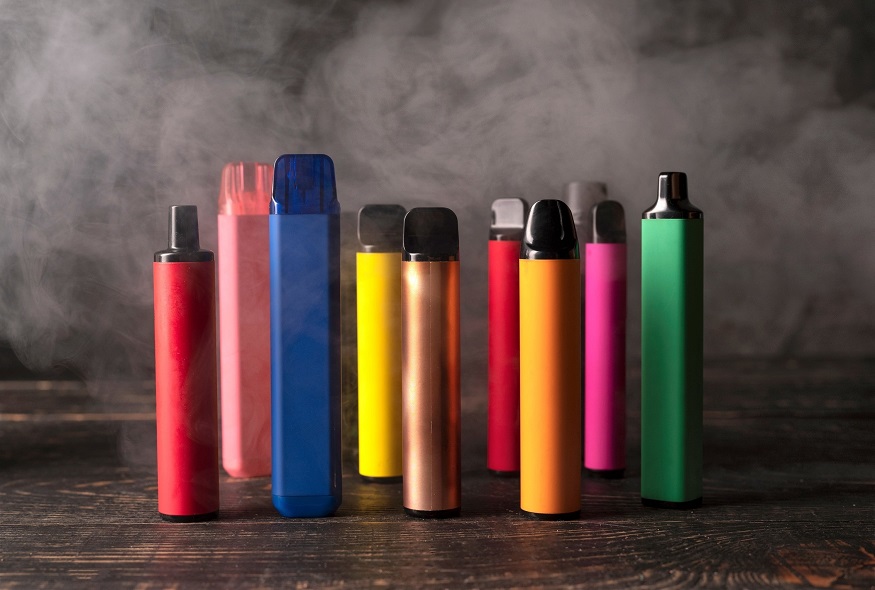 SPRINGFIELD – Nicotine companies are creating vapes that are designed to look like school supplies and therefore are easily concealed, leading State Senator Julie Morrison to pass a law to prevent these products from being advertised to children.
SPRINGFIELD – Nicotine companies are creating vapes that are designed to look like school supplies and therefore are easily concealed, leading State Senator Julie Morrison to pass a law to prevent these products from being advertised to children.
“With more high school students using vapes today than cigarettes 10 years ago, youth e-cigarette use is a public health threat,” said Morrison (D-Lake Forest). “This law will prohibit tobacco companies from pulling the wool over the eyes of educators and guardians whose job it is to keep kids safe.”
Educators have complained to the Illinois Department of Healthcare and Family Services about finding electronic cigarettes on school property that are designed to look like school supplies such as highlighters, erasers and pencil sharpeners. Senate Bill 2662 will prohibit the advertising, marketing or promoting of an electronic cigarette in a manner that is likely to cause a person to mistake it for an object that is anything other than what it is, a tobacco product.
Read more: Morrison law to protect kids from damaging effects of nicotine
More Articles …
- Peters’ law improves Crime Victims Compensation Program
- Villivalam, Senate Transportation Committee hosts third subject matter hearing on how transit supports community quality of life
- Johnson law to ensure housing resources for students
- Insurance to cover medically-recommended IVF thanks to Hastings
Page 90 of 768
